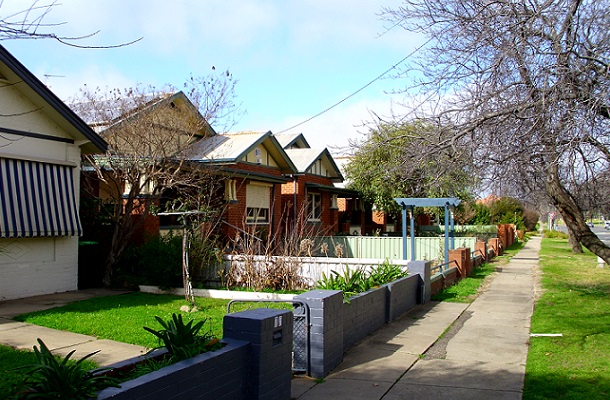On housing affordability for young people in Sydney

Society has taught us that owning one’s own home is a symbol of status and security, a rite of passage into adulthood. Sarah McKenzie says young people like herself might well have to consider new lifestyle possibilities in the pursuit of the Australian Dream.
In the past few months, heated debate has arisen around Australia’s housing affordability crisis. Of particular interest to me is this: how can young people in Sydney enter the housing market at a time when Sydney is ranked the second most unaffordable city in the world[1], with a median house price of a whopping $1,123,991[2]?
I’m no real estate expert, but surely houses over a million are unobtainable to most. Perhaps the simple solution is not to buy a house in Sydney. Yet Australia’s other major cities, such as Melbourne, Perth, Adelaide and Brisbane, have also been deemed ‘severely unaffordable’ for low to medium-income earners[3] – and many people in their twenties fit into this category, particularly if they’re students.
The struggle is real: the high cost of living for young people in Sydney
I told some German friends recently that students living out of home in Sydney typically work long hours while studying full-time at university, just to be able to afford their meals and rent each week.
My friends were shocked. They told me that students in Germany don’t have to work while at uni unless they want to, as university tuition and transport are free, and food and rent are so affordable.
In Australia, the high cost of living in Sydney and other major cities is key to why more than half of 18 to 24-year-olds still live at home[4]. For young people aiming to save up and climb the prospective property-buyers ladder, living at home is pretty much the only option.
Unfortunately, our generation’s tendency to live at home for longer has seen us accused of mooching off of our parents big time. We’ve been called lazy, selfish, spoilt and entitled. We’re apparently lacking in ‘life skills’, are unable to hold down a steady job and are far too accustomed to luxuries.
Remember when demographer Bernard Salt suggested that if young people would just forgo their smashed avo on toast, they could save up to buy a house?[5] This is absurd, but he’s right about one thing: eating out in Sydney sure is expensive. As is paying rent.
I’m 25 and about one-third of my weekly pay is spent on rent. Even in a house shared with five others, rent costs a lot. Once I’ve paid the bills, bought groceries and deducted transport costs, there isn’t much left over. Over the past three years, I’ve managed to save up for a few overseas trips, but I’m certainly not in a position to buy a house in five or even ten year’s time. I doubt I’ll ever be able to afford a house in Sydney.
Reimagining the Australian dream
In May last year, Malcolm Turnbull suggested on ABC radio that wealthy parents should “shell out” to help their children purchase a property, prompting Bill Shorten to accuse him of being “out of touch” with the realities of young Australians today[6]. I agree with both statements – sort of.
Firstly, if I were a wealthy parent, I probably would help my child to purchase a property. If I were a parent, wealthy or otherwise, I would do everything within my power to help my child have the best opportunities in life.
Secondly, while I don’t blame wealthy parents for enabling their children to enter the housing market, few young Australians are afforded this luxury (pardon the pun). Most of us don’t have rich parents. Most of us study, work and save just as tirelessly as our parents before us. And most politicians discussing the issue are indeed out of touch with the realities we face.
Andrew Crossley, a property investment strategist, wrote a recent article for Huffington Post arguing that millennials need to stop whinging about unaffordable housing and look at purchasing a house an hour away from a capital city[7]. He claims that the real issue is our “self-entitlement” and unwillingness to live away from the conveniences of the city centre.
I disagree. Not all young people are city-centric; we just gravitate to where the universities and jobs are. If job opportunities become more decentralised in the future (and why shouldn’t they, in the age of technology?), I actually think that young people will start moving away from Sydney and renting or buying houses in regional centres like Wollongong and Newcastle, where the cost of living is lower and the standard of living arguably higher.
While I don’t personally aspire to the white-picket-fence Australian Dream of owning my own home, there are many young people who do. Society has taught us that owning one’s own home is a symbol of status and security. It’s seen as a rite of passage into adulthood; a sign that you have worked hard enough to be able to invest in something big and set yourself up for the future.
It’s natural for young people today to want the same kind of financial security and a place to call home like their parents had. However, my generation face greater financial difficulties in achieving this goal than the generation before us. This should be taken into account before we are accused of not working hard enough and not moving out of home because we’re slack and lazy.
So clearly, there are more complex external forces at play when it comes to housing affordability for young people in Sydney. Houses in the harbour city are unlikely to become affordable for young people with low incomes anytime soon. In summary, it’s time to consider new lifestyle possibilities in the pursuit of the Australian Dream.
Housing Affordability Online Consultation:
Q: What can be done to improve housing affordability?
- [1] Demographia , 2017
- [2] Domain Group, 2017
- [3] Demographia, 2017
- [4] SBS, 2016
- [5] The Guardian, 2016
- [6] Sydney Morning Herald, 2016
- [7] Huffington Post, 2017
Sarah McKenzie is a writer, editor and communications professional based in the Illawarra. Sarah is currently working for a healthcare promotion charity and has a background in strategic marketing. She is a strong advocate for social justice issues and gender equality, with a passion for literature and the arts.













